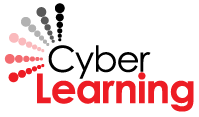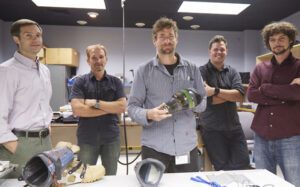Blog archive
-

How Curriculum Materials Make a Difference for Next Generation Science Learning
SRI researchers found that when curriculum materials explicitly support the features and practices called for within the new science standards—such as including opportunities for students to engage in science practice—teachers can implement the new standards, and students learn more. The goal of Next Generation Science Standards (NGSS) is to focus students on doing science. The…
-

National Cyberlearning Summit Features Major Advances in Learning with Technology
On June 9 and 10, 2014, more than 100 investigators, innovators, researchers, and educators convened for a summit at the University of Wisconsin, Madison to identify and communicate major advances in learning with technology.
-

New Phase 1 Clinical Trial Unit Nears Completion in Michigan
Since early 2013, SRI Biosciences, with support from the Michigan Economic Development Corporation, has been gearing up to establish a Phase 1 clinical trial facility in Plymouth, Michigan, located squarely in the state’s “Life Sciences Corridor.” The facility will meet an important translational need for government and industry clients and partners, particularly small biotech companies that need early-stage human…
-

New Food Recognition Technology Lets Devices See What’s on Your Plate—To Help You Decide Whether to Eat It
Computer vision—emulation of the human visual system—is enabling groundbreaking advances that allow computers to act and react like humans. Applications for computer vision range from monitoring activities at crowded events, to warning drivers of imminent danger, to self-steered robots that can navigate objects easily. For decades, SRI’s computer vision researchers have pioneered development of technologies…
-

Toward More Predictive Tests for Cancer Therapies
Understanding Clinical Drug Resistance at the Cellular Level Ninety-five percent of experimental cancer treatments fail during clinical development, with seventy percent of them proving to be ineffective in late phase II clinical trials. The scientific community agrees that a major reason for this failure is the lack of preclinical models that can accurately mimic cancer…
-

California Linked Learning District Initiative: Implications for the Future of High School Students
Since 2009, SRI Education has been funded by the James Irvine Foundation to evaluate the California Linked Learning District Initiative, an innovative approach to transforming the high school education experience through a combination of rigorous academics and work-based learning opportunities. Intended to make high school both engaging and relevant, the initiative’s goal is to effectively provide…
-

How Do We Keep Students Engaged in Learning Science?
Children come to school with curiosity and questions about their world. As educators, we need to keep children curious and excited throughout their schooling—encouraging them to explore their environment, ask questions, make predictions about what they think will happen and why, and test those predictions. Toward this end, states have collaborated to develop a completely…
-

Community Colleges Provide Invaluable Stepping Stone for Autistic Youth
Community colleges may provide a smoother transition to the academic and social challenges that can arise in a university setting. These institutions may be particularly appealing for students with autism spectrum disorders (ASDs) to pursue postsecondary education while still remaining at home, where they have the continuity of family support and a consistent environment. To…
-

Leading the Conversation on the Future of Robotics
Lately it seems that robotics is at the forefront of many conversations—about technology, jobs, startups, education, and more. At SRI, we’re gearing up for National Robotics Week in April and partnering with Xconomy to bring together some of the industry’s foremost thought leaders on April 10 at Robo Madness 2014. And, we’ll be sharing our passion for robotics…
-

Iris Recognition Improves Access Control without Slowing Down Business
If your office building or facility is like most, people come and go throughout the day. Employees and visitors need quick access to get their jobs done, and your business needs security. So what is the best approach to ensuring secure access without slowing things down? Most organizations use a variety of traditional methods to…
-

Incorporating Digital Learning Resources in the Classroom: A First Look at Using Khan Academy
Today’s teachers are using online learning resources and blending digital learning with traditional teacher-led instruction. But it’s challenging to identify high-quality resources and determine how they will work best in classrooms, given particular instructional priorities and the characteristics of the students being served. As a leading digital learning organization in K-12 education, Khan Academy has…
-

ARPA-E and SRI’s Energy Innovation Pipeline
In winter 2012, SRI International began building a proof-of-concept system to demonstrate natural gas storage at low pressure in a conformable tank. We featured the technology, funded under the Advanced Research Projects Agency—Energy (ARPA-E) Methane Opportunities for Vehicular Energy (MOVE) program, at ARPA-E’s 2013 Energy Innovation Summit.We returned to the 2014 Summit this week to…